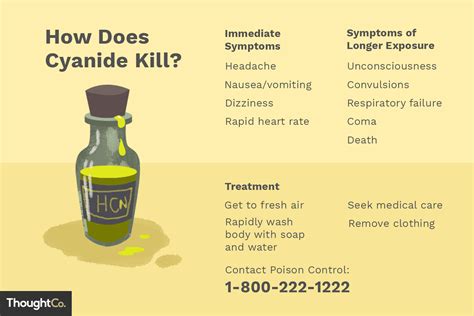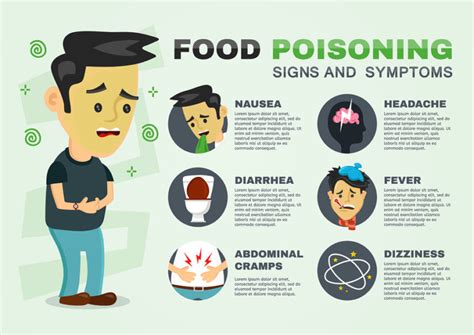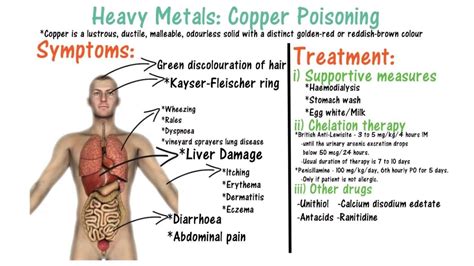
Fertilizer Poisoning Symptoms
Fertilizer Poisoning Symptoms
Fertilizers are essential for crop growth and yield, helping farmers produce bountiful harvests. However, improper use of fertilizers can lead to fertilizer poisoning symptoms in humans and animals alike.
Fertilizer poisoning occurs when someone ingests, inhales, or absorbs too much fertilizer through their skin. The severity of the symptoms depends on the type and amount of fertilizer exposure. Common symptoms include nausea, vomiting, abdominal pain, diarrhea, and headache. In severe cases, individuals may experience seizures, difficulty breathing, and unconsciousness.
Fertilizer poisoning can occur in various ways, such as inhaling fertilizer dust while handling it or consuming fruits and vegetables that have absorbed excessive amounts of fertilizer. Prolonged exposure to certain types of fertilizers can also cause long-term health effects such as liver and kidney damage.
If you suspect fertilizer poisoning, seek medical attention immediately. Treatment will depend on the type and severity of exposure, and can range from basic supportive care to hospitalization and intensive care. It is crucial to avoid inducing vomiting or administering any medications before seeking medical advice as these actions may worsen the situation.
Prevention is key in avoiding fertilizer poisoning symptoms. Farmers and gardeners should always follow instructions on the label and wear protective clothing while handling fertilizers. Individuals with children and pets should keep fertilizers out of reach and avoid using them near playgrounds or areas where children and pets frequent.
In conclusion, fertilizer poisoning symptoms can be severe and potentially life-threatening. Proper usage and storage of fertilizers, along with quick medical attention if exposure occurs, can help prevent serious health consequences. Always read labels and follow instructions carefully to ensure a safe and healthy growing environment.
Inhalation Symptoms of Fertilizer Poisoning
Have you ever wondered what would happen if you inhale fertilizer accidentally? Fertilizers are commonly used to promote plant growth, but exposure to them can be dangerous. Inhaling fertilizer can lead to various symptoms of poisoning that can affect your health and well-being.
The symptoms of fertilizer poisoning from inhalation can vary depending on the type of fertilizer and the duration and intensity of exposure. Some of the common symptoms include coughing, wheezing, difficulty breathing, chest pain, headache, nausea, and vomiting. These symptoms can range from mild to severe and can last for a few hours to several days.
Ammonia is a common component in many fertilizers and is known to cause respiratory irritation and damage when inhaled. Ammonia gas can irritate and burn the eyes, nose, throat, and lungs, leading to inflammation and fluid buildup in the lungs. Chronic exposure to ammonia can also cause bronchitis and asthma.
Nitrates are another major component in fertilizers, which can cause methemoglobinemia or “blue baby syndrome” in infants. This occurs when the nitrates interfere with the oxygen-carrying capacity of the blood, making it difficult for the body to transport oxygen effectively. Symptoms of methemoglobinemia include shortness of breath, blue or grayish skin color, and fatigue.
To avoid the inhalation of fertilizer, always wear protective gear such as a mask and gloves when handling fertilizers. Ensure proper ventilation in the area where fertilizers are being handled, stored, or mixed. Always follow the manufacturer’s instructions on how to use the product safely.
In conclusion, inhalation of fertilizer can cause serious harm to your health. The symptoms of fertilizer poisoning can range from mild to severe, depending on the type of fertilizer and the intensity and duration of exposure. To stay safe, always handle fertilizers with care and ensure proper ventilation when using them. Remember, prevention is key when it comes to avoiding fertilizer poisoning.
Skin Contact Symptoms of Fertilizer Poisoning
Fertilizer poisoning can occur when a person comes into contact with fertilizer through the skin. Fertilizers contain chemicals that can be harmful to humans, and the symptoms of poisoning can range from mild irritation to severe illness or even death.
One of the most common symptoms of fertilizer poisoning is skin irritation. This can manifest as redness, itching, or rash on the skin. In some cases, the skin may become inflamed and blistered, and this can be very painful. It’s important to note that these symptoms may not appear immediately after contact with the fertilizer and may take several hours or days to develop.
Another symptom of fertilizer poisoning is respiratory distress. When a person inhales fertilizer dust or fumes, it can cause difficulty breathing, chest tightness, and coughing. In severe cases, it can lead to pneumonia or acute respiratory distress syndrome (ARDS), which can be life-threatening.
Ingesting fertilizer can also be dangerous, and symptoms of ingestion include nausea, vomiting, diarrhea, abdominal pain, and dizziness. In severe cases, it can lead to seizures, coma, or even death.
If you suspect that you or someone else has been poisoned by fertilizer, it’s important to seek medical attention immediately. The first step in treating fertilizer poisoning is to remove any contaminated clothing and wash the affected area thoroughly with soap and water.
Depending on the severity of the symptoms, treatment may include medications to relieve pain and inflammation, oxygen therapy to assist with breathing, or even hospitalization. In some cases, dialysis may be necessary to remove the toxins from the body.
It’s important to take precautions when working with or around fertilizers to avoid the risk of poisoning. Always wear protective clothing, including gloves, long sleeves, and pants. Avoid inhaling fertilizer dust or fumes, and never ingest fertilizer. If you do come into contact with fertilizer, wash the affected area immediately and seek medical attention if symptoms develop. By taking these precautions, you can help prevent fertilizer poisoning and stay safe while working with fertilizers.
Chronic Exposure Symptoms of Fertilizer Poisoning
Fertilizer poisoning is a serious health issue that can be caused by chronic exposure to fertilizers or other agricultural chemicals. These toxic substances can enter the body through inhalation, ingestion, or skin contact and lead to a range of symptoms, some of which can be life-threatening.
One of the most common symptoms of fertilizer poisoning is respiratory distress. When these chemicals are inhaled, they can irritate the lungs and cause breathing difficulties. Other respiratory symptoms may include coughing, wheezing, and chest tightness. In severe cases, exposure to fertilizers can lead to acute respiratory distress syndrome (ARDS), which can be fatal.
Exposure to fertilizers can also affect the digestive system, leading to symptoms such as nausea, vomiting, abdominal pain, and diarrhea. The severity of these symptoms will depend on the level of exposure and the type of fertilizer involved. Pesticides and herbicides, for example, can cause more severe gastrointestinal symptoms than standard fertilizers.
Skin contact with fertilizers can cause a range of symptoms as well. These may include rash, itching, burning, and blistering. In severe cases, contact with certain fertilizers can lead to chemical burns. Eye irritation is also a common symptom of fertilizer poisoning. Chemicals that come into contact with the eyes can cause redness, tearing, and sensitivity to light.
If you suspect that you or someone else has been exposed to fertilizers or other agricultural chemicals, it’s important to seek medical attention immediately. Early intervention can help prevent more severe symptoms from developing and reduce the risk of long-term health complications. Treatment for fertilizer poisoning may involve decontamination and supportive care, depending on the severity of symptoms.
In conclusion, chronic exposure to fertilizers and other agricultural chemicals can lead to a range of symptoms, including respiratory distress, gastrointestinal issues, skin irritation, and eye problems. Early intervention is crucial in preventing the development of more severe symptoms. If you are working with or near fertilizers, take the necessary precautions to protect yourself and others from exposure.
Diagnosis and Treatment of Fertilizer Poisoning
Fertilizer poisoning can occur when an individual ingests or inhales large amounts of fertilizer or is exposed to it for an extended period. Although it is not a common form of poisoning, it can be fatal if not promptly diagnosed and treated.
Symptoms of fertilizer poisoning vary depending on the type of fertilizer involved, but some common signs include nausea, vomiting, abdominal pain, diarrhea, breathing difficulties, dizziness, and seizures. In severe cases, ingestion of large amounts of fertilizer can cause irreversible damage to vital organs such as the liver and kidneys.
If you suspect fertilizer poisoning, seek medical attention immediately. The first step in diagnosis is a thorough physical examination and medical history. Blood tests may also be performed to check for abnormal levels of chemicals in the blood.
Treatment for fertilizer poisoning depends on the severity of symptoms. If the individual has ingested the fertilizer, the doctor may induce vomiting or perform gastric lavage to remove any remaining fertilizer from the stomach. Activated charcoal may also be given to absorb the fertilizer and prevent further absorption into the body.
In more severe cases, hospitalization may be required. Treatment may involve administering oxygen, intravenous fluids, and medications to control symptoms such as seizures and breathing difficulties. In extreme cases, dialysis may be necessary to remove toxins from the bloodstream.
Prevention is key in avoiding fertilizer poisoning. Always read the label carefully before using fertilizers, and follow the instructions precisely. Wear proper protective equipment such as gloves, masks, and eye protection when handling fertilizers. Store fertilizers in a secure location out of reach of children and pets.
In conclusion, fertilizer poisoning is a serious condition that requires prompt diagnosis and treatment. If you suspect fertilizer poisoning, seek medical attention right away. Remember to always take precautions when handling fertilizers to prevent accidental exposure.
Prevention of Fertilizer Poisoning
Fertilizers are essential for boosting plant growth and improving crop yields. However, if not handled properly, they can cause serious harm to people and animals. Fertilizer poisoning occurs when someone comes into contact with or ingests large quantities of fertilizer chemicals.
The good news is that fertilizer poisoning is preventable. Here are some tips to keep yourself and your loved ones safe:
1. Store fertilizers correctly: Keep fertilizers out of reach of children and pets. Store them in a cool, dry place away from direct sunlight. Lock them up if possible.
2. Use protective gear: Wear gloves, long-sleeved shirts, and pants when handling fertilizers. This will protect your skin from irritations and burns.

3. Follow instructions: Always read the label and follow the manufacturer’s instructions carefully. Avoid using more than the recommended amount of fertilizer.
4. Don’t mix different fertilizers: Mixing different types of fertilizers can create toxic gases and chemicals. Stick to using one type of fertilizer at a time.
5. Wash your hands: After handling fertilizers, wash your hands thoroughly with soap and water.

6. Clean up spills immediately: If you spill fertilizer, clean it up immediately to prevent accidental ingestion or contact.
7. Educate children: Teach your children about the dangers of fertilizers and why they should never touch or handle them.
In addition to these tips, it’s also important to be aware of the symptoms of fertilizer poisoning. These can include nausea, vomiting, diarrhea, abdominal pain, headache, dizziness, and difficulty breathing. If you suspect someone has been poisoned by fertilizer, seek medical attention immediately.
By following these simple steps, you can prevent fertilizer poisoning and ensure the health and safety of yourself and those around you. Remember, prevention is always better than cure!
Emergency Response for Fertilizer Poisoning
Fertilizer poisoning can happen to anyone handling, storing, or using fertilizers improperly. The hazardous chemicals present in fertilizers can lead to severe health consequences if ingested, inhaled, or exposed to the skin. Therefore, it’s crucial to know how to respond in case of fertilizer poisoning emergencies.
The first step is to remove the victim from the contaminated area and seek medical attention immediately. Fertilizer poisoning symptoms can manifest within minutes or hours after exposure, and quick action can be the difference between life and death. Call emergency services or poison control center for immediate assistance.
If the victim ingests the fertilizer accidentally, do not induce vomiting unless instructed by a medical professional. Some fertilizers contain highly corrosive substances that can damage the esophagus and throat, leading to further complications. Instead, provide the victim with water or milk to dilute the poisonous substances in their system.
In case of skin exposure, remove contaminated clothing and rinse the affected area with water for at least 15 minutes. Avoid using hot water as it can accelerate chemical reactions and worsen the injury. Seek medical attention for severe burns or rashes.
For inhalation injuries, move the victim to fresh air immediately and loosen any tight clothing around the neck and chest. If breathing difficulties persist, administer CPR if you are trained to do so. Call emergency services or take the victim to the hospital as soon as possible.
Preventing fertilizer poisoning incidents starts with proper handling and storage of fertilizers. Always read the product label and follow the manufacturer’s instructions when applying fertilizers. Store fertilizers in a secure place away from children and pets, and wear protective gear such as gloves and masks when handling them.
In conclusion, fertilizer poisoning is a serious emergency that requires quick and decisive action. Knowing how to respond in case of such an incident can save lives and prevent long-term health consequences. Remember to call emergency services, seek medical attention, and take preventive measures to avoid fertilizer poisoning incidents.


